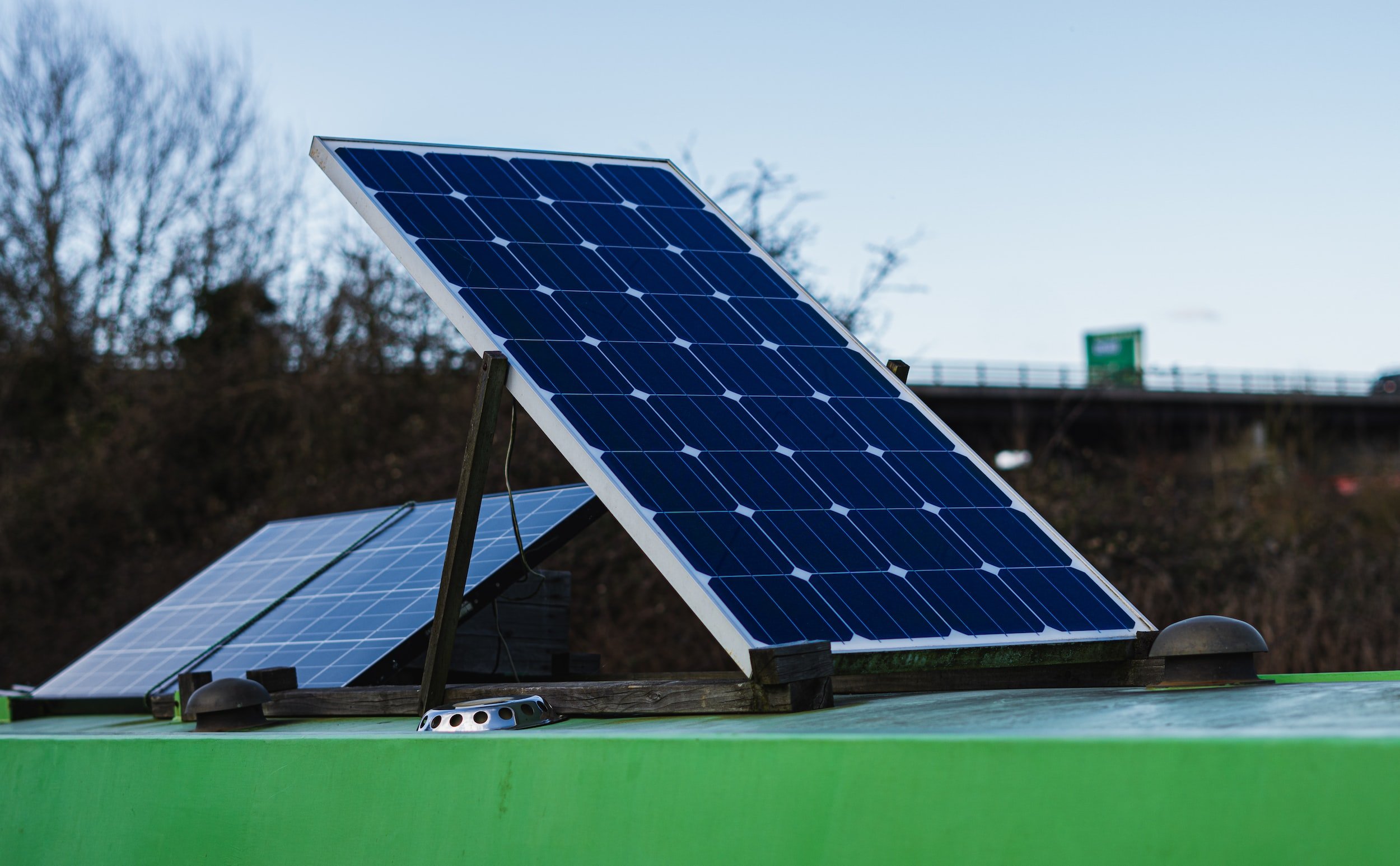How Do Solar Batteries Work?
Intro
To truly maximize the benefits of solar power, it is crucial to understand how solar energy is stored. This is where solar batteries come into play. In this article, we'll dive into the inner workings of solar batteries, explore their types, compare their advantages, and shed light on their cost and benefits.
How Solar Energy is Stored
Solar batteries play a vital role in the process of storing solar energy. When sunlight hits the solar panels, it is converted into electricity through the photovoltaic effect. However, the electricity generated may exceed the immediate demand. Solar batteries bridge this gap by storing the excess energy for later use, ensuring a constant and uninterrupted power supply, even when the sun isn't shining. This energy storage mechanism is the key to unlocking the full potential of solar power systems.
Solar Battery Types
Several types of solar batteries are available in the market today. Two prominent options are lead-acid batteries and lithium-ion batteries. Lead-acid batteries are a traditional and affordable choice, suitable for smaller-scale applications. On the other hand, lithium-ion batteries have gained significant popularity due to their higher energy density, longer lifespan, and faster charging capabilities. They are considered the optimal choice for solar energy storage systems, offering enhanced performance and efficiency.
Lithium-Ion Battery VS Lead-Acid Battery
When comparing lithium-ion batteries to lead-acid batteries, several factors come into play. Lithium-ion batteries excel in energy efficiency, cycle life, and maintenance requirements. They have a longer lifespan, often lasting over a decade, while lead-acid batteries typically last for five to seven years. These batteries offer a higher depth of discharge, meaning they can utilize a larger portion of their stored energy. While lead-acid batteries have a lower upfront cost, the long-term benefits of lithium-ion batteries make them a favorable choice for solar energy storage systems.
Comparison Summary:
Lithium-ion batteries excel in energy efficiency, cycle life, and maintenance requirements. They offer a higher depth of discharge, allowing them to utilize more stored energy.
Lead-acid batteries have a shorter lifespan: about five to seven years. They have a lower upfront cost.
AC vs. DC-Coupled Storage
In the realm of solar battery storage, there are two common approaches: AC-coupled storage and DC-coupled storage. AC-coupled storage systems connect the solar panels and the batteries through an inverter. This allows for flexibility and compatibility with existing solar installations. DC-coupled storage, on the other hand, connects the solar panels directly to the batteries. While AC-coupled storage offers more versatility, DC-coupled storage tends to be more efficient, as it eliminates energy losses associated with the conversion process.
Comparison Summary:
AC-coupled storage systems connect solar panels and batteries through an inverter, offering flexibility and compatibility with existing solar installations.
AC-coupled storage provides versatility, while DC-coupled storage tends to be more efficient.
DC-coupled storage connects solar panels directly to batteries, eliminating energy losses associated with conversion.
Pros and Cons of Solar Battery Storage
Solar battery storage brings numerous benefits to homeowners and businesses. Firstly, it provides energy independence by reducing reliance on the electrical grid. This translates into potential cost savings, especially when combined with time-of-use tariffs. Moreover, solar battery storage enables the utilization of stored energy during peak demand periods, reducing stress on the grid and minimizing the carbon footprint. However, solar battery storage does have some limitations, including initial investment costs and limited storage capacity. It is essential to consider these factors while assessing the feasibility of implementing a solar battery storage system.
Solar Battery Storage System Cost
The cost of a solar battery storage system depends on various factors, such as battery capacity, inverter requirements, and installation costs. While the upfront investment may seem significant, it's essential to evaluate the long-term financial benefits. As technology advances and economies of scale come into play, solar battery storage systems are becoming more cost-effective. The potential return on investment, reduced reliance on the grid, and long-term savings in energy bills make solar battery storage an attractive option for homeowners and businesses alike.
Frequently Asked Questions (FAQ)
-
Solar energy can be stored for extended periods, depending on the capacity of the solar battery storage system. With advancements in technology, solar batteries can retain stored energy for several days or even weeks, providing reliable power during low-sunlight periods or grid outages.
-
A solar battery calculator is a tool used to estimate the size and capacity of a solar battery storage system based on factors such as energy usage, solar panel output, and desired backup power duration. It helps homeowners and businesses determine the optimal battery size to meet their specific energy needs.
-
The lifespan of solar batteries can vary depending on factors such as battery chemistry, usage patterns, and maintenance. On average, lithium-ion batteries used in solar energy storage systems can last anywhere from 10 to 15 years. Regular maintenance and proper usage practices can help extend the battery lifespan.
-
When solar batteries reach their full capacity, the excess solar power generated by the solar panels is typically redirected to the electrical grid. This process is known as "net metering." The surplus energy can be credited to the user's account, allowing them to draw from the grid during times of low solar production or at night.
-
The duration that solar batteries can power a house depends on various factors, including the battery's capacity, the energy demand of the house, and the available solar energy. A well-sized solar battery storage system can provide power to a house for several hours or even days, depending on the usage and stored energy.
Key Takeaways
Solar batteries are essential for storing excess solar energy and ensuring a constant power supply.
Lithium-ion batteries are the preferred choice for solar energy storage due to their higher efficiency and longer lifespan.
AC-coupled and DC-coupled storage systems offer different advantages, with AC-coupled systems providing more compatibility and DC-coupled systems offering higher efficiency.
Solar battery storage provides benefits such as increased energy independence, potential cost savings, and reduced reliance on the grid.
Factors like initial investment costs and limited storage capacity should be considered when evaluating solar battery storage systems.
Solar batteries can store solar energy for extended periods, and their lifespan varies based on battery chemistry and maintenance practices.
When solar batteries are full, excess power can be sent back to the grid through net metering.
The duration that solar batteries can power a house depends on battery capacity, energy demand, and available solar energy.
Conclusion
Solar batteries revolutionize the way we harness and utilize solar power. They allow us to store excess energy, providing a reliable and uninterrupted power supply. With technology advancements and decreasing costs, solar battery storage systems are becoming increasingly accessible and cost-effective. By investing in solar battery storage, homeowners and businesses can enjoy the benefits of energy independence, potential cost savings, and reduced reliance on the grid. Embrace the power of solar energy storage and unlock the full potential of clean, renewable energy.
Remember - regularly maintain and monitor your solar battery storage system to ensure optimal performance and longevity. Consult a reputable solar power service provider to assess your energy needs and determine the best solar battery storage solution for your home or business. Let solar batteries be the key to unlocking the full potential of solar energy and taking a step towards a greener future!




